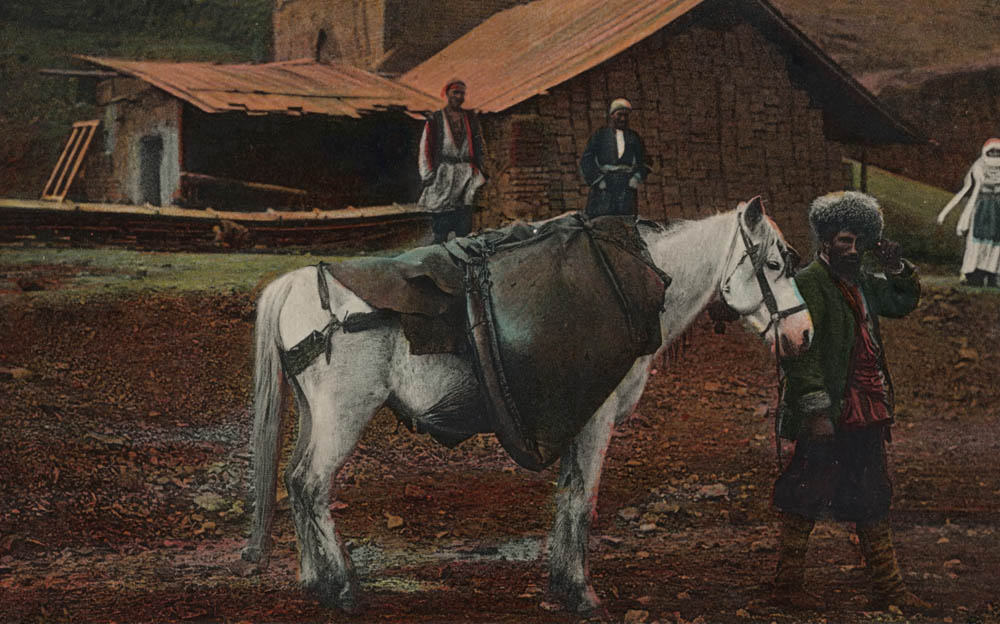The water carrier was a representative of one of the oldest and most respected professions of the East and the Caucasus.
Before the advent of centralised water supply systems, it was these people who provided towns and villages with the vital resource of water.
Their work was indispensable in the hot and arid climate, where wells and springs were often located at a considerable distance from dwellings.
Water carriers used a special horse, mule, or donkey fitted with large leather bags called tuluks, made from tanned hides.
These were filled with clean water drawn from nearby rivers, streams, or springs and delivered to homes, shops, and marketplaces.
Experienced water carriers had their own established routes and territories, and in large cities there even existed associations or guilds that regulated their work and pricing.
